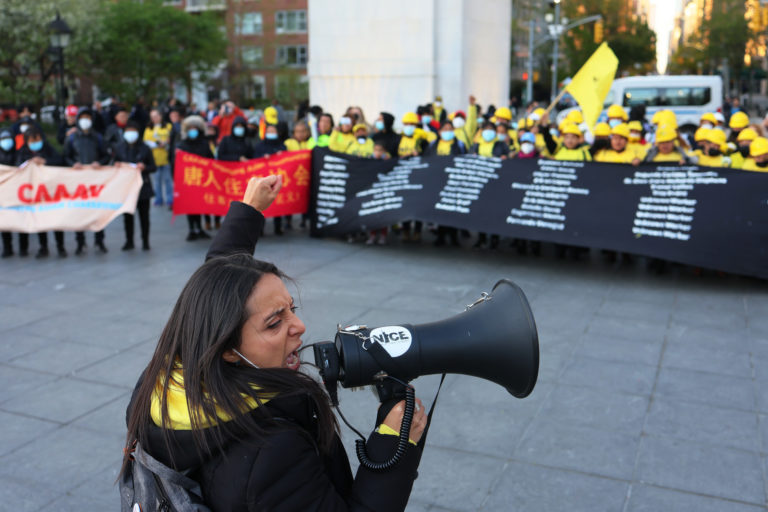On Friday, June 14, the NLRB overturned 38 years of precedent, holding in UPMC and SEIU, 368 NLRB No. 2 (June 14, 2019), that an employer has no duty to permit nonemployee union organizers to use public space on its property to solicit union support. The case involved two union representatives who entered a public cafeteria in the UPMC Presbyterian Shadyside hospital in Pittsburg, PA, and discussed union organizational campaign matters with hospital employees. The hospital ejected the representatives, and the union filed unfair labor practice charges under the NLRA.
The administrative law judge who heard the case decided that the hospital did violate the NLRA. The ALJ followed precedent. Since 1981, the Board had consistently held that nonemployee union organizers could not be denied access to employee property open to the public, so long as the organizers used the property in a manner consistent with its intended use and were not disruptive.
But the Board reversed, finding that its prior decisions violated the Supreme Court’s ruling, in NLRB v. Babcock & Wilcox Co., 351 U.S. 105 (1956), that an employer may deny access to its property to nonemployee union organizers if the union has other reasonable means of accessing employees and the employer does not discriminate against the union by allowing other nonemployees access to its property. So long as an employer prohibits all nonemployees from soliciting or engaging in promotional activities on employer property, the Board found, it does not discriminate against nonemployee union organizers by prohibiting them from doing the same. Because there was no evidence that UPMC Presbyterian Shadyside hospital permitted any solicitation or promotional activity in its cafeteria, the Board determined that the hospital had not discriminated against the union organizers by removing them, and had therefore not violated the NLRA.
Member McFerran dissented, admonishing the Board for narrowing statutory protections for employees and unions without proper factual predicate for overturning its precedent. McFerran pointed out that although the representatives brought union pins and flyers, they did not bring authorization cards, and there was no evidence that they had distributed the pins and flyers or solicited any employees to join or support the union. They merely say at a table and engaged in conversation, just like the other nonemployee patrons that the hospital allowed to remain. If that was solicitation, argued McFerran, then any union representative’s contact with employees would necessarily be solicitation, a reading of the term that would be unprecedently, and disturbingly, broad. And if the hospital’s ejection of the representatives—who differed from other non-employee patrons only in their union affiliation and the union-related content of their conversation—was not discrimination, then any employer’s ejection of union organizers from its cafeteria simply for talking about the union would necessarily not be discrimination, a reading of the term that would be unprecedently, and disturbingly, narrow.
Also on Friday, New York State Sen. Diane Savino and Assemblyman Marcos Crespo introduced the “Dependent Worker Act,” a bill that would extend wage payment protections to gig economy workers and other independent contractors, and allow those workers to unionize and collectively bargain with their employers. While the New York State AFL-CIO supports the bill, tech industry representatives oppose it. So, too, do some labor groups. Hector Figueroa, president of 32BJ SEIU, and Bhairavi Desai, executive director of the New York Taxi Workers Alliance, criticized the bill on Tuesday for failing to provide protections on minimum wage, overtime, workers’ compensation, paid leave, and unlawful wage deduction. “Collective bargaining happens in the context where workers already have other labor law protections,” said Desai. “To isolate collective bargaining from other labor law protections leaves the workers bargaining from zero.” Desai and Figueroa urge New York lawmakers to pass a bill similar to that currently pending in the California State Senate, which, as Annie reported last Thursday, Uber and Lyft strenuously oppose.






Daily News & Commentary
Start your day with our roundup of the latest labor developments. See all
December 19
Labor law professors file an amici curiae and the NLRB regains quorum.
December 18
New Jersey adopts disparate impact rules; Teamsters oppose railroad merger; court pauses more shutdown layoffs.
December 17
The TSA suspends a labor union representing 47,000 officers for a second time; the Trump administration seeks to recruit over 1,000 artificial intelligence experts to the federal workforce; and the New York Times reports on the tumultuous changes that U.S. labor relations has seen over the past year.
December 16
Second Circuit affirms dismissal of former collegiate athletes’ antitrust suit; UPS will invest $120 million in truck-unloading robots; Sharon Block argues there are reasons for optimism about labor’s future.
December 15
Advocating a private right of action for the NLRA, 11th Circuit criticizes McDonnell Douglas, Congress considers amending WARN Act.
December 12
OH vetoes bill weakening child labor protections; UT repeals public-sector bargaining ban; SCOTUS takes up case on post-arbitration award jurisdiction